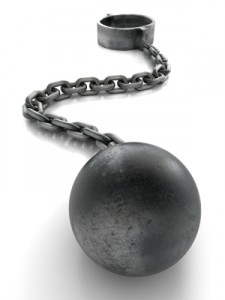 Income tax comes up in bankruptcy cases in several different ways. First, there are filing requirements for debtors who wish to take advantage of the bankruptcy process. The debtor must have filed tax returns for the four prior tax years in order to file bankruptcy. Failure to file returns may result in the case being dismissed. Some debtors are not required to file tax returns because they don’t earn enough income. In those instances the debtor must sign an affidavit stating why they haven’t filed their returns.
Income tax comes up in bankruptcy cases in several different ways. First, there are filing requirements for debtors who wish to take advantage of the bankruptcy process. The debtor must have filed tax returns for the four prior tax years in order to file bankruptcy. Failure to file returns may result in the case being dismissed. Some debtors are not required to file tax returns because they don’t earn enough income. In those instances the debtor must sign an affidavit stating why they haven’t filed their returns.
Debtors who have filed all required returns but owe taxes may file bankruptcy, but the debt is treated differently depending on which type of bankruptcy case is filed and whether or not the tax debt is dischargeable. Income tax is usually a nondischargeable debt. However, if the due date for filing the tax return was more than three years ago, the return was filed more than two years ago, the taxes haven’t been assessed during the last 240 days, and the debtor is not guilty of tax evasion or fraud, then the taxes may be treated as an unsecured debt and possibly discharged.
Taxes treated as unsecured debt are discharged in Chapter 7 bankruptcy cases. In Chapter 13 cases the taxes are paid if there are funds available to pay that class of creditors. If the debt does not qualify for discharge then the debt is paid in full in Chapter 13 cases as a priority debt. In Chapter 7 cases the taxes are not discharged but collection is deferred until after the discharge order is signed.
Income tax returns come up in one other way that is worth mentioning. During the pendency of a Chapter 13 case, debtors must continue to file tax returns. If they don’t file a return then the case may be dismissed. If the debtor files a return and owes money then the IRS may require that the funds be included in the bankruptcy case and the plan may need to be modified to provide for the post-petition claim. However, if there is a refund then the Chapter 13 trustee may take the funds to provide additional payment to the unsecured creditors being paid in the case. Each district has its own rules regarding tax refunds in Chapter 13 cases, so it is important to become familiar with the trustee’s tax refund policy in your case.